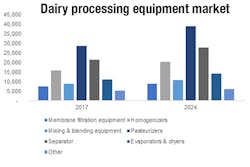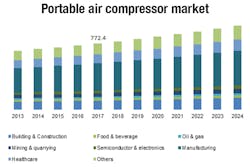Crude oil-to-chemicals and other disruptive technologies to significantly effect chemical industry
The convergence of two significant technological developments in the petrochemical industry — crude oil-to-chemicals (COTC) and oxidative coupling of methane (OCM) — are poised to have a significant impact on the chemical industry, according to analysis from IHS Markit.
The analysis from Don Bari, vice president of chemical technology at IHS Markit, followed a June 13 announcement by Siluria Technologies, which has joined forces with Saudi Aramco Technologies to execute a multiplant technology license for the integration of Siluria’s natural gas-to-olefins technology with Saudi Aramco’s high-olefins cracking process technology.
In the past decade or so, disruptive technology development and deployment have been dominant on a global basis in the petrochemical industry. One of the most significantly disruptive technologies, based on sheer volume, is crude oil-to-chemicals. These projects merge a refinery and petrochemical plant into one, and thus, go beyond the state-of-the-art refinery petrochemical integration by the implementation of new/reconfiguring unit operations into a refinery.
The objective is to shift the product slate derived from a barrel of oil to a range of 40 percent to 80 percent chemical feedstocks and non-fuel products, up from the traditional range of 15 percent to 25 percent, in order to significantly increase the value of crude oil reserves.
The Siluria Technologies process, which produces olefins directly from natural gas through oxidative coupling (chemistry) of methane (OCM), is expected to further allow Saudi Aramco’s future crude oil-to-chemicals facilities to create more value by converting the very low-value off-gases (largely methane) into higher-value olefins products, which improves carbon efficiency and increases the volume of the barrel of oil directed to valuable fundamental petrochemicals.
"In short, the intersection of a global hydrocarbon resource powerhouse such as Saudi Aramco, with Siluria Technologies, a small, but innovative, process-technology company, is expected to yield significant returns for both entities, but also drive the industry forward in process improvements, greater carbon efficiency, capital efficiency and value creation," Bari said. "While these technologies are capitally intensive, the commercial application of these two revolutionary technologies not only enables greater carbon efficiency, flexibility and value to the petrochemical producers, but also a significant route to greater carbon emission reduction, which has an untold value to chemical producers and to the sustainability of the industry. This sustainability value will likely only continue to increase as more consumers, investors and regulators seek greater environmental stewardship from petrochemical producers."
Dairy processing equipment market worth more than $13B by 2024
Graphic courtesy of Global Market Insights Inc.
The dairy processing equipment market size is set to surpass $13 billion by 2024, according to a new research report by Global Market Insights Inc. Growth in the geriatric population accompanied by health conditions including joint issues, obesity, diabetes and calcium deficiency has increased milk and milk products consumption and is likely to drive dairy processing equipment market size. Processing equipment helps in making product stable and increase its shelf life, thus gaining consumer acceptance. Emphasis on technology for automation will drive industry growth. Data-driven manufacturing will increase milk and dairy products output and safety with effectively utilizing company’s capabilities and infrastructure.
The dairy processing equipment market size from cream application is poised to surpass 26 thousand units by 2024. Demand for innovative desserts with nutritive value supported by growth in low-fat and low-sugar products to adopt healthy diets balancing taste will fuel product demand in this application. India’s dairy processing equipment market size was $1.95 billion over the foreseeable timeframe. The homogenizer equipment market size may exceed $1.8 billion up to 2024. U.S. dairy processing equipment market size from cheese application will witness significant gains at 4 percent.
Mining and oil and gas drive portable air compressor market
Graphic courtesy of Global Market Insights Inc.
The portable air compressor market will surpass $9 billion by 2024, according to a new research report by Global Market Insights Inc. These portable machines are hand-carried, wheel- or utility- mounted and stand available in various characteristics such as single stages, multistages and oil-injected. Rising use of these machines in the mining and oil and gas sectors will drive the portable air compressor market.
Many government agencies are setting up mandatory frameworks and ecological requirements for industrial equipment with regard to greenhouse gas emissions from compressors which are major sources of air pollution. These regulations have resulted in the development of energy-efficient compressors with better pollution control mechanisms. The higher costs of these newly developed machines are likely to negatively affect the portable air compressor market growth during the forecast timeframe. The healthcare segment is said to hold close to 20 percent market share by 2024. Chinese manufacturing application is said to surpass $1.3 billion by the end of 2024 with a compound annual growth rate (CAGR) of around 3.5 percent. The Mexican portable air compressor market will surpass $350 million by the end of 2024.




